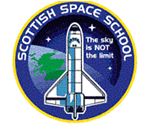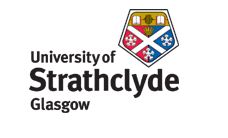This blog is no longer in use. We now have a STEM Section on Education Scotland’s Learning Blog. Click on the link below to access it.
Category Archives: News
The dirty side of clean
Moray House students were set the assignment of working in cross disciplinary groups (design technologies and sciences in this case) to create a workshop that Dynamic Earth in Edinburgh could use with S1-S3 pupils.
The dirty side of clean was a workshop developed by:
Kay Conroy – Design & Technology – Project Manager
Glow meet live from Scottish space school June 15th 10.00am
Join us for this exciting opportunity to explore space travel and meet 3 exciting guests in one day!
Anatoly Artsebarsky – Cosmonaut
Alvin Drew – Astronaut
Amber Gell – Spacecraft systems engineer
Find out more about what they do, take part in space quizzes and use this opportunity to find out more about the world of space exploration.
Click here to find out more information and a sign up sheet for this Glow meet
Scottish space school press release
University to celebrate 50 years of Human Spaceflight at Scottish Space School
A lecture featuring some of the world’s leading figures in space travel will be the highlight of this year’s Scottish Space School at the University of Strathclyde.
Now in its tenth year, the space school, which will run between June 12 – 17, gives 100 secondary school pupils the opportunity to attend a week-long residential course, with lectures, labs and workshops delivered by leading academics and researchers at the University’s Faculty of Engineering.
Russian cosmonaut Anatoly Artsebarsky will be joined by NASA astronaut Alvin Drew and Spacecrafts Systems Engineer Amber Gell to offer the students a unique insight into the space industry before delivering presentations at the public lecture on Wednesday 15 June at 7pm in the University’s John Anderson Building.
Alvin and Amber will also visit Alloway Primary School and Uddingston Grammar School, and take part in a live Q&A session with 4000 pupils from 80 primary schools across Scotland via Learning and Teaching Scotland’s GLOWmeet facility.
Gordon McVie, Outreach Co-ordinator for the Department of Electronic Engineering,said: “The Scottish Space School is unique to the University of Strathclyde and provides young people from all over the country with a fantastic opportunity to learn from the world’s top astronauts and engineers.
“We receive applications from every region of Scotland and the 100 selected are the top performing fifth year students in Mathematics and Science. Such is the success of the school, over 400 previous attendees have now graduated and secured top jobs within the science and technology industries.
“Science and technology play a large part in all our lives and in the economy of Scotland, and the Space School seeks to inspire the next generation to pursue science and engineering courses of study, and consider careers in these fields.”
At the conclusion of the week, 10 of the pupils will be selected to go on a Learning Journey to the Johnson Space Center in Houston,Texas, in November.. This life changing experience, meeting the leading players in the space programme coupled with the skills they gain from the visit, will be invaluable in providing the students with a platform to build a career in the industry.
Sustainability Project – You don’t know what you’ve got till it’s gone!
The programme of work I developed for S1-S3 was designed to fit into seven 60 minute lessons, with the first few set aside as ‘skills builders’ and ‘developing understanding’ tasks. The latter part of the programme involved students taking part in a ‘Big Task’ and working on a given problem to design a range of sustainable packaging, having been introduced to the big issues.
The project was introduced in a dynamic way by having a 3 or 4 minute presentation where senior pupils pretended to be from the future and to be amazed that our world is so different from theirs. The actors talked about how they have limited access to food, energy supplies are low and expensive, climate change has resulted in storms and floods and there is no oil left to run cars or heat homes. The pupils in the class were then told ‘You don’t know what you’ve got til it’s gone. Save it!’
Before being introduced to the ‘Big Task’ of the project. The pupils developed their understandings of sustainability and explored their own values and attitudes.
Liam Ball.
Shelter Project
The Scottish education curriculum reform, Curriculum for excellence houses four capacities, one of which places emphasis on creating ‘responsible citizens’, which can work in parallel with previously embedded ‘Eco Schools’ initiative. These two initiatives go hand in hand.
As part of my final placement I designed a unit of work to develop ‘responsible citizens’ through working alongside the ‘Eco Schools’ initiative to:
- improve the school’s environment
- reduce litter and waste
- encourage active citizenship
- build strong partnerships with a variety of community groups
The unit of work was designed to allow students to be creative whilst working individually and together to become responsible citizens and build up a relationship with their local community.
The student’s were asked to design a sustainable youth shelter for their community, which would provide a place for youngsters to meet, with rubbish bins and would be manufactured from locally sourced sustainable material.
Elaine Freeman
Flash Music Festival
Design Context
Music is an interest which is enjoyed and listened to by the majority of people around the world. Every year there are thousands of music festivals around the globe which attracts people of all ages, genders, origins.
The Flash Music Festival project provided students with the opportunity to become a member of a design teamworking for a local music festival. The role helped the students to investigate the skills and attributes which occur behind the scenes in the music industry and to contribute to skills which which if they choose to do so, use in further life.
This unit of work was created for sudents in the lower Secondary school (CfE Third/Fourth level) to help expand their knowledge and skills to become designers of the future.
The Flash music festival is based around an interactive case study. This case study incorporates a central ‘Big Task’ theme and a series of ‘Small Tasks’ which have been devised to help and develop the students skills as they complete the course project.
Nicola McKeeman
Jailhouse Rocks – Dynamic Earth – STEM
 Moray House PGDE students were set the challenge of designing a workshop for school pupils visiting Dynamic Earth (S1-S6). The students worked in cross disciplinary teams with a design and technology team leader, leading a group of students which included maths, sciences and design technology PGDE.
Moray House PGDE students were set the challenge of designing a workshop for school pupils visiting Dynamic Earth (S1-S6). The students worked in cross disciplinary teams with a design and technology team leader, leading a group of students which included maths, sciences and design technology PGDE.
Our team developed a workshop called Jailhouse Rocks where the learners will be given a selection of rocks and are asked to identify them. They will have to make use of witness reports of fictional crimes committed by the rocks to help them identify the rock. An example of one of the witness reports is that the ‘culprit’ (the rock) was seen flying through the air and hit the victim on the head – this was a meteorite. Other ‘culprits’ included a rock sticking out of the ground which a cyclist hit and fell off their bike.
Noticing that the Dynamic Earth staff are very engaging and game for a laugh we thought the workshop could be developed by getting the staff to dress up as a witness and perform each role.
The workshop finishes up with a millionaire style quiz using the voting pads and this allows the teachers to assess learning.
This workshop was chosen by Dynamic Earth as the winner of the competition.
Ryan Mackerracher and Julia Davidson
Maths in the pipeline
http://www.techfestsetpoint.org.uk/activities/maths/pipeline
‘Maths In The Pipeline’ is a full day of mathematical workshops and challenge for 15 year olds based on the applications of mathematics in the oil and gas industry. All the days workshops are based on real data and the Captain Field in the Moray Firth is used as an example.
Beforehand pupils can undertake an interactive, virtual visit to the Captain Platform via the website: http://resources.schoolscience.co.uk/SPE/index.html.
Pupils from different schools are placed in a team and work alongside industry professionals at an industry venue. During the morning the teams are introduced to key industry topics and solve problems on these whilst developing their team working skills. The highlight of the day is the afternoons business challenge. With a deadline to meet and a presentation to be made this is both realistic and demanding.
Following on from Maths In The Pipeline, pupils can get involved with STEM In The Pipeline at S6 level.
The University of Edinburgh School of informatics schools outreach
“Our school outreach programmes are designed to educate school aged children about informatics in a fun and informative way. In an age of information technology it is important that future generations are engaged and educated not just about computers and computer science, but about information in its widest sense.
We offer a variety of outreach programmes and activities that help to teach school age children about informatics in a ‘hands on’ and imaginative way.”
Quoted from the website. Click the link below for more information.
http://www.ed.ac.uk/schools-departments/informatics/outreach/schools/overview



